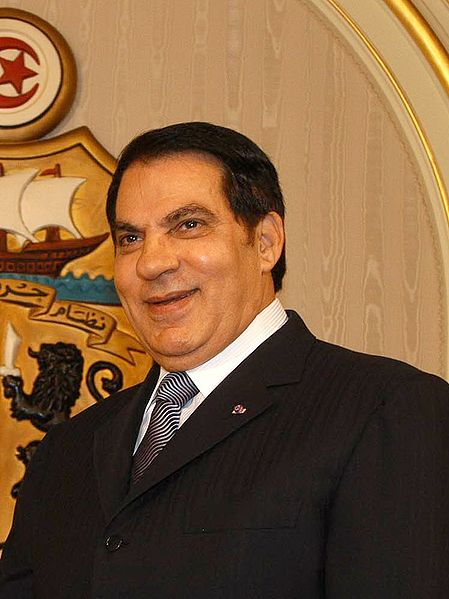From the Open-Publishing Calendar
From the Open-Publishing Newswire
Indybay Feature
Tunisian President's Overthrowing
Tunisia’s long running dictator and President Zine El Ebidine Ben Ali was overthrown from power on the 14th of January. The unpopular dictator had been in power for 23 years but was overthrown after several months of rioting and social unrest.

Tunisia’s Prime Minster Mohammed Ghannouchi announced on state television that he has taken control as interim President of Tunisia. The Prime Minister quoted a constitutional law which allows the Prime Minister to take control of the country in the event the President is unable to govern ‘‘if the president of the republic cannot fulfil his duties, there will be an interim decision to move his executive powers to the prime minister’’. Ghannouchi announced there would be fresh elections in 6 months, government officials have already been sacked and replaced.
Prior to the President’s departure, he declared a state of emergency and ordered a strict curfew because of the violent protests. The large scale unrest and brutality of police forces in the country has led to the deaths of at least 13 people on the 14th of January and 23 people in several days prior to this date. However, according to The International Federation of Human Rights Leagues 66 people have been killed in the rioting so far, a higher figure that official government estimates. Many of these deaths have been attributed to Tunisian police who opened fire on rioters. Police have been captured on video beating protestors on the floor with batons and kicking them until they are unable to resist. Seven of the total deaths so far have been suicides and one man set himself on fire after police tried to stop him from selling vegetables.
A recent Wikileak revealed that the President’s wife Lela Ben Ali was extremely unpopular and the extended family of the President was referred to as a ‘quasi-mafia’ due to constant allegations of corruption. A 2009 election also caused controversy and backlash after the now former dictator won with 89.62% of votes. The election was widely believed to have been rigged. After being governed by a brutal regime for over two decades, Tunisians were finally pushed to the limit and were forced into action because of an unstable economy and corrupt government.
Prior to the President’s departure, he declared a state of emergency and ordered a strict curfew because of the violent protests. The large scale unrest and brutality of police forces in the country has led to the deaths of at least 13 people on the 14th of January and 23 people in several days prior to this date. However, according to The International Federation of Human Rights Leagues 66 people have been killed in the rioting so far, a higher figure that official government estimates. Many of these deaths have been attributed to Tunisian police who opened fire on rioters. Police have been captured on video beating protestors on the floor with batons and kicking them until they are unable to resist. Seven of the total deaths so far have been suicides and one man set himself on fire after police tried to stop him from selling vegetables.
A recent Wikileak revealed that the President’s wife Lela Ben Ali was extremely unpopular and the extended family of the President was referred to as a ‘quasi-mafia’ due to constant allegations of corruption. A 2009 election also caused controversy and backlash after the now former dictator won with 89.62% of votes. The election was widely believed to have been rigged. After being governed by a brutal regime for over two decades, Tunisians were finally pushed to the limit and were forced into action because of an unstable economy and corrupt government.
For more information:
http://www.actionforourplanet.com
Add Your Comments
Comments
(Hide Comments)
So far, there has not been a revolution in Tunisia, but only the replacement of a hated individual at the top, and a few of his cronies, by people who went along with his regime and profited from it.
When cops and military officers start dying or fleeing the country, and the U.S. Embassy goes up in flames, maybe we can talk about a "Tunisian Revolution".
When cops and military officers start dying or fleeing the country, and the U.S. Embassy goes up in flames, maybe we can talk about a "Tunisian Revolution".
For more information:
http://tiny.cc/indybay_aarons
We are 100% volunteer and depend on your participation to sustain our efforts!
Get Involved
If you'd like to help with maintaining or developing the website, contact us.
Publish
Publish your stories and upcoming events on Indybay.
Topics
More
Search Indybay's Archives
Advanced Search
►
▼
IMC Network


